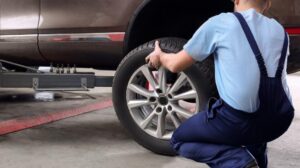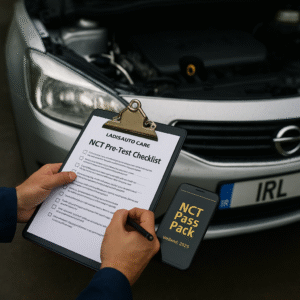Regular car maintenance is essential for keeping your vehicle in top shape and ensuring its longevity. By following a routine maintenance schedule, you can prevent costly repairs, improve fuel efficiency, and enhance your overall driving experience. In this article, we will highlight the benefits of routine maintenance and provide you with a helpful checklist to keep your car running smoothly.
Benefits of Routine Car Maintenance
1. Prevents Costly Repairs: Regular maintenance allows you to catch potential issues early on, before they turn into major problems. By addressing minor repairs promptly, you can save yourself from expensive repairs down the line.
2. Improves Safety: Routine maintenance ensures that all safety features of your vehicle, such as brakes, tyres, and lights, are in optimal condition. This helps to reduce the risk of accidents and keeps you and your passengers safe on the road.
3. Enhances Fuel Efficiency: A well-maintained car operates more efficiently, resulting in better fuel economy. By keeping your engine properly tuned, changing air filters, and maintaining appropriate tyre pressure, you can save money on fuel costs.
4. Increases Resale Value: If you plan to sell or trade in your car in the future, regular maintenance can significantly increase its resale value. A well-maintained vehicle with a complete service history is more attractive to potential buyers and can fetch a higher price.
Car Maintenance Checklist
Follow this checklist to ensure that you are taking the necessary steps to keep your car in optimal condition:
1. Regular Oil Changes
Regularly changing your engine oil is vital for lubricating the engine and preventing excessive wear and tear. Check your vehicle’s owner’s manual for the recommended oil change intervals and make sure to use the correct type of oil.
2. Check and Replace Filters
Regularly inspect and replace your air filter, oil filter, and fuel filter as recommended by your vehicle’s manufacturer. Clean filters improve engine performance and fuel efficiency.
3. Inspect and Maintain Tyres
Check your tyre pressure regularly and ensure that it matches the recommended levels. Rotate your tyres and check for signs of wear and tear. Replace tires when the tread depth becomes too low.
4. Brake System Maintenance
Regularly inspect your brake pads, rotors, and brake fluid levels. Replace worn-out brake pads and have your brake system serviced to ensure optimal braking performance.
5. Battery Maintenance
Check your battery terminals for corrosion and clean them if necessary. Test your battery’s voltage regularly and replace it if it shows signs of weakness.
6. Fluid Checks and Changes
Regularly check and top up your vehicle’s fluids, including coolant, transmission fluid, power steering fluid, and windshield washer fluid. Replace fluids as recommended by your vehicle’s manufacturer.
7. Inspect Lights and Wipers
Regularly check your headlights, taillights, turn signals, and brake lights to ensure they are working properly. Replace any bulbs that are burnt out. Check your windshield wipers and replace them if they are worn or not functioning effectively.
8. Regular Professional Inspections
While you can perform many maintenance tasks yourself, it is also important to have your car inspected by a professional regularly. They can identify any hidden issues and provide expert advice on maintaining your vehicle.
By following this car maintenance checklist and staying proactive with regular inspections, you can extend the life of your vehicle, save money on repairs, and enjoy a safer and more efficient driving experience. Remember, a well-maintained car is a reliable car.





